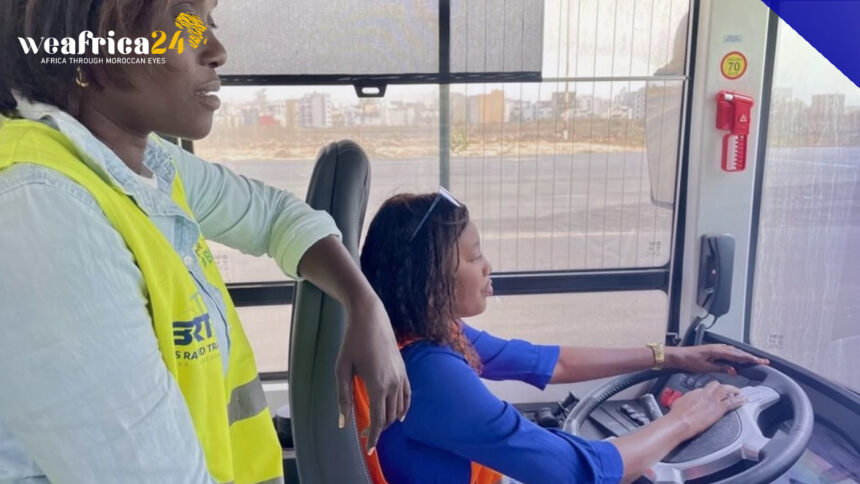In Senegal and Ivory Coast, women are challenging everyday sexism, particularly in traditionally male-dominated professions. One such field is bus driving, long considered a man’s domain. However, a new wave of empowerment is sweeping through Dakar, where a group of women is undergoing training to become drivers of the brand-new electric buses set to revolutionize public transport in the city and its outskirts.
Behind the wheel of one of these sleek electric buses, Yaye Astou Thiam receives guidance from her instructor, Fary, as she maneuvers through exercises on the former Dakar airport runway. These women, currently undergoing training, were recruited by Dakar Mobilities, the operator of the Bus Rapid Transit (BRT) system, from driving schools where they were obtaining their regular driving licenses.
For many, like 34-year-old Cléophace Apolline Mané, who previously worked in the restaurant industry and as a cleaner, this opportunity is a dream come true. She remarks, “In Senegal, unemployment among youth is rampant. So, when an opportunity arises, you seize it. For me, this opportunity presented itself, and it was my childhood dream. It’s like the icing on the cake!”
Since October, these 22 women have diligently obtained their commercial driving licenses (Permis D) and undergone rigorous theoretical and practical training specific to bus operation. Anna Ndour, a former teacher, shares her pride in contributing to the transformation of the transportation sector: “I am immensely proud to be a woman and to be able to participate in reshaping the narrative around this profession, once wrongly deemed fit only for men. Driving a bus requires intelligence, not gender, so there’s no reason why women shouldn’t excel in this field.”
Upon successful completion of their training and tests, these women will be employed as drivers for the BRT, set to commence operations this May. Yaye Astou Thiam eagerly anticipates welcoming her first passengers: “They will be surprised to see women behind the wheel, perhaps underestimating us a bit. But we are thrilled to be part of the pioneering cohort.” The goal by year-end is to have a total of 352 drivers, including around 50 women.
This initiative not only addresses gender disparities in the transportation sector but also serves as a beacon of empowerment and progress, showcasing the invaluable contributions of women in traditionally male-dominated industries. As these women break barriers and drive change, they inspire others to challenge stereotypes and pursue their aspirations relentlessly. Through their determination and skill, they are not only driving buses but also steering towards a more inclusive and equitable future.







